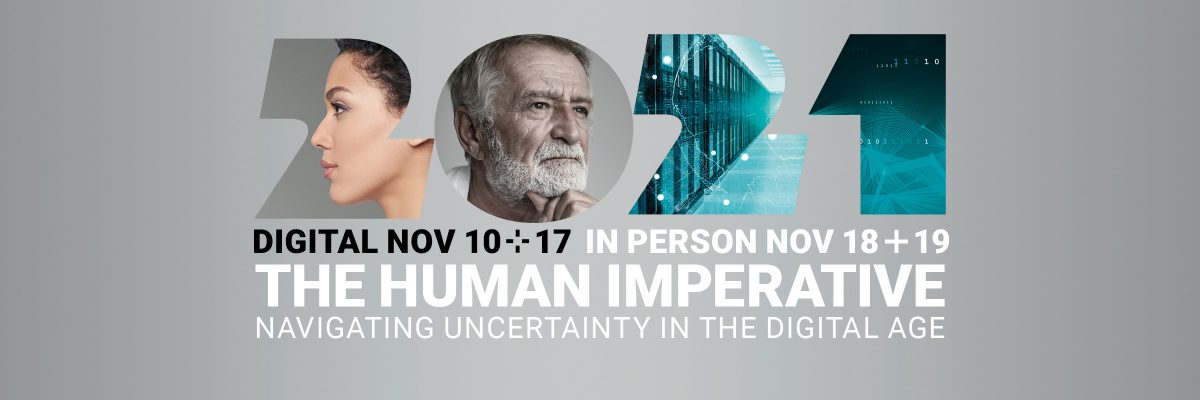
Modern has traditionally been a label that stood for “breaking with the old ways”. In this sense, “modern” is a mindset that does away with the mantra of “never change a running system”. Modern companies constantly challenge existing ways of doing things while being conscious where modern means doing it the “old” way.
Are ecosystems modern?
An ecosystem is born when people start operating “…beyond their traditional operational borders and creating or participating in new, flexible, and adaptive networks…” (Richard Straub). It can be part of only one organization, or cross the boundaries of that organization. The ecosystem in itself is not modern but looking at a company as a series of (overlapping) ecosystems is.
Drucker Forum 2019
Integrating the larger perspective.
To work with those ecosystems in a modern way the integration of two outside perspectives is important:
Looking at social and environmental challenges.
The economist Kate Raworth developed the doughnut model that systematically brings those challenges together. It defines the margins of action for mankind. She asks the 21st century question: “How many benefits for society and the living world can we generate in the way we design this?” Which contrasts with the 20th century question of “How much financial value can we extract from this?”
Dealing with emotional culture.
People comprise our economic ecosystems. Therefore we have to factor in the impact and influence of emotions. Corporate culture often only refers to cognitive culture: intellectual values, norms, artefacts, and assumptions that serve as a guide for the group to thrive. Usually omitted is the group’s emotional culture: affective values, norms, artefacts, and assumptions. These govern which emotions people have and express at work and which ones they are better off suppressing. (Sigal Barsade & Olivia A. O’Neill in HBR).
Ask three crucial questions.
Being truly modern means asking three questions for each ecosystem that go beyond the traditional way of managing a company:
- Are we constantly challenging the way things are done?
- Are we looking at the benefits for society?
- Are we providing a framework for emotional stability?
Some of the criteria to consider when undertaking a modernization initiative include:
- Development of Strategy => clear & reliable
- Creation of (emotional) culture => consistent & exciting
- Use of Technology => enabling & catalytic
- Dissemination of Knowledge => wide & unthreatening
- Outlook on Timeline => long-term or infinite
- Importance of Operations => lean & empowering
- Importance of Leadership => balanced & understanding
- Clarity of Governance => delegating & trusting
There is a risk in becoming modern, as it involves effort in the form of time and money with outcomes that cannot be well defined. Still, operating in a modern way will be the key driver for success in our hyper connected and complex world. It allows the use of new resources, to gain speed where size may be a hurdle and create space for a trusting and self-directed working environment.
Becoming a modern company will let you work the way you want: have fun, make money and not work with idiots.
Ingrid Maass is an expert in management of service firms striving for excellence. Her consultancy acrossabridge helps clients to use their growth potential and create stable and attractive organizations.
This article is one in the Drucker Forum “shape the debate” series relating to the 11th Global Peter Drucker Forum, under the theme “The Power of Ecosystems”, taking place on November 21-22, 2019 in Vienna, Austria #GPDF19 #ecosystems

